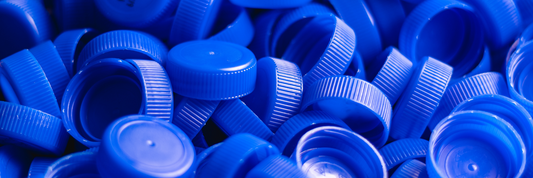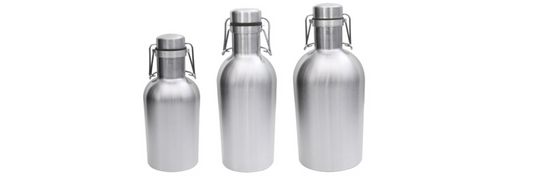Look around you – screw caps are everywhere. From the water bottle in your hand to the jar of sauce in your pantry, these simple yet effective closures play a vital role in sealing and protecting countless products. This article will delve into the world of screw caps, exploring their various types, the materials they are made from, their key advantages, and the diverse industries that rely on them.
What is Screw Cap?
At its core, a screw cap is a type of closure designed to seal containers, most commonly bottles and jars. Its fundamental design relies on a threaded mechanism, featuring a spiral ridge inside the cap that interlocks with a matching thread on the neck of the container. This allows the cap to be tightened or loosened by rotational movement, creating a secure seal.
Screw caps are predominantly manufactured using two main materials: metal and plastic. Metal screw caps are often made from aluminum or steel, offering durability and a premium feel, while plastic screw caps utilize various polymers like polypropylene (PP), high-density polyethylene (HDPE), or polyethylene terephthalate (PET), providing versatility and cost-effectiveness. The primary function of a screw cap is to effectively seal and protect the contents of a container, preventing leaks, preserving freshness, and safeguarding against contamination from external elements.
The Variety of Screw Caps: Types and Materials
While the basic principle of a screw cap remains the same, a wide variety of types and materials cater to specific needs and applications. Understanding these differences is key to appreciating the versatility of threaded caps.
Metal Screw Caps
Metal caps, often crafted from aluminum or steel, are renowned for their durability and robust sealing capabilities. Aluminum screw caps are commonly found on beverage bottles, including water, soft drinks, and even wine, prized for their lightweight nature and ability to maintain a tight seal, preserving carbonation and preventing leaks. Steel caps, while less common for direct consumer products due to cost, may be used in more industrial applications requiring high strength.

Plastic Screw Caps
Plastic caps offer immense versatility in design, color, and functionality. Different types of plastics are employed based on the application. Polypropylene (PP) is frequently used for food and beverage containers due to its good chemical resistance. High-density polyethylene (HDPE) is often found on household and industrial products, valued for its strength and rigidity. Polyethylene terephthalate (PET) is commonly used for water and soda bottles, known for its clarity and recyclability. The cost-effectiveness and ease of molding plastic allow for a vast array of designs and functionalities in screw caps.

Specialized Screw Cap Designs
Beyond the basic materials, various specialized designs address specific requirements:
Tamper-Evident Screw Caps
These threaded caps are designed with a mechanism that clearly indicates if the container has been opened. Often featuring a breakable band or a seal that must be broken upon first use, these caps are crucial for product safety and consumer confidence, particularly in the food and pharmaceutical industries.
Child-Resistant Screw Caps
Designed to prevent accidental ingestion by children, these caps typically require a specific two-step action, such as pushing down while turning, to open. They are commonly used for medications, cleaning supplies, and other potentially hazardous household products.
Dispensing Screw Caps
These caps integrate a mechanism for controlled dispensing of the product. Examples include flip-top spouts for sauces and lotions, pump mechanisms for liquid soaps and hand sanitizers, and nozzle caps for precise application of certain liquids.
Vented Screw Caps
For certain products that may release gases or are sensitive to pressure changes, vented screw caps are used. These caps allow for pressure equalization, preventing the container from bulging or leaking, which is particularly important for some types of food and chemical products often stored in types of screw caps for glass jars.
Why Choose Screw Caps? Key Advantages
Screw caps have become a ubiquitous choice for container closures due to a compelling set of advantages that benefit both manufacturers and consumers. Here's a closer look at why they are so widely preferred:
Superior Sealing: Preventing Leaks and Contamination
The fundamental threaded design of screw caps ensures a tight and reliable seal. When properly tightened, the interlocking threads create a continuous barrier that effectively prevents leaks of liquid or gas. This secure closure also plays a crucial role in preventing contamination from external elements like air, moisture, and microorganisms, thus preserving the quality and extending the shelf life of the product inside. Think about a carbonated beverage – the tight seal of a screw cap is essential for maintaining its fizz and preventing it from going flat.
Ease of Use: Convenient Opening and Closing
One of the most consumer-friendly aspects of screw caps is their ease of use. They can be effortlessly opened and securely closed by hand with a simple twisting motion, requiring no special tools or excessive force. This convenience makes them a popular choice for everyday products, from bottled water that you can quickly open on the go to jars of food that can be easily resealed to maintain freshness.

Reusability: A Sustainable Option
Screw caps and the containers they seal often offer the potential for reusability. Many consumers reuse glass jars with screw caps for storing leftovers, organizing pantry items, or even for crafting projects. This reusability not only provides added value to the consumer but also aligns with growing environmental consciousness by reducing the need for single-use containers. Imagine reusing a stylish glass jar with a screw cap to store homemade jams or spices – it's both practical and sustainable.
Cost-Effectiveness: Efficient Manufacturing
From a manufacturing perspective, screw caps are generally a cost-effective closure solution. The production processes for both metal and plastic screw caps are well-established and efficient, often involving high-speed molding or stamping. This cost-effectiveness contributes to the overall affordability of products packaged with screw caps.
Versatility: Wide Range of Applications
Screw caps exhibit remarkable versatility, making them suitable for a vast array of container types, including bottles and jars of various shapes and sizes. They are also widely used across diverse industries, from beverages and food to pharmaceuticals, cosmetics, and even household chemicals. This adaptability underscores their effectiveness and practicality as a universal closure solution.
Applications Across Industries: Where Screw Caps Shine
The versatility and reliability of screw caps have made them an indispensable packaging solution across a multitude of industries. Their ability to provide a secure seal and ease of use contribute to their widespread adoption.
Beverage Industry
The beverage industry is a major consumer of screw caps. You'll find them on everything from individual water bottles and fizzy soft drinks to refreshing juices and even beer. Their ability to maintain a tight seal is crucial for preserving carbonation and preventing leaks in these products. Interestingly, the use of screw caps in the wine industry has been steadily growing as a reliable alternative to traditional cork closures. Many winemakers appreciate the consistent seal and the elimination of cork taint, making screw caps a modern and practical choice for various types of wine.
Food Industry
In the food industry, screw caps are the workhorse for sealing jars containing a vast array of products. From savory sauces and flavorful condiments to aromatic spices and sweet jams, screw caps ensure freshness and prevent spoilage. Their ease of resealing is also a significant benefit for consumers, allowing them to conveniently store leftover portions.
Pharmaceutical Industry
The pharmaceutical industry relies heavily on specialized screw cap designs to ensure the safety and integrity of medications. Tamper-evident screw caps provide a clear indication if a product has been opened, while child-resistant screw caps are crucial for preventing accidental ingestion of potentially harmful substances, making them a vital component in pharmaceutical packaging.
Cosmetic and Personal Care Industry
Screw caps are a common sight in the cosmetic and personal care aisle. They are used to seal lotions, shampoos, conditioners, creams, and a wide variety of other beauty products. Often, these caps are integrated with dispensing mechanisms like flip-tops or pumps for added convenience for the consumer.
Chemical and Industrial Applications
Beyond consumer goods, screw caps also find applications in the chemical and industrial sectors. They are used to seal containers holding various chemicals, industrial fluids, and cleaning products. In these applications, the material compatibility of the screw cap with the contents is particularly important to ensure the cap doesn't degrade or react with the chemicals.
Factors to Consider When Choosing Screw Caps
Selecting the right screw cap for your product is a crucial decision that impacts everything from product safety and shelf life to consumer experience and cost. Here are key factors to consider during the selection process:
Material Compatibility
The first and foremost consideration is the compatibility of the screw cap material with the product it will contain. Different materials like metal and various types of plastics can react differently with various substances. For instance, certain chemicals might corrode metal caps, while some essential oils can degrade certain types of plastic. Ensuring compatibility prevents leaks, maintains product integrity, and avoids unwanted chemical reactions that could compromise the product's quality or safety.
Size and Thread Design
A perfect fit is essential for a secure seal. The size and thread design of the screw cap must precisely match the neck finish of the container. This includes the diameter of the opening and the specific thread pattern (pitch, number of threads, etc.). An incorrect match will result in a loose or improperly sealed container, leading to potential leaks, spoilage, or difficulty in opening and closing. Standardized neck finishes exist within the packaging industry to help ensure compatibility between different caps and containers.
Sealing Requirements
The level of sealing required depends on the nature of the product. For some products, a basic seal to prevent spillage might suffice. However, for others, such as carbonated beverages, pharmaceuticals, or products sensitive to oxygen or moisture, an airtight and leak-proof seal is critical. This might necessitate specific cap designs, the inclusion of liners (e.g., foam, foil, rubber) within the cap, or specialized thread designs to achieve the desired level of protection and preservation.
Product Safety and Regulations
Depending on the industry and the type of product, there are often specific safety standards and regulations that must be met. For food, beverages, and pharmaceuticals, tamper evidence is often a requirement to ensure product integrity and consumer safety. Child-resistant closures are also mandatory for certain household and pharmaceutical products. When choosing a screw cap, it's crucial to select one that meets all applicable safety regulations for your specific product and target market.
Cost and Production Volume
Finally, cost is always a significant factor in packaging decisions. The material of the screw cap, its design complexity, and the volume of caps being produced will all influence the overall cost. While performance and safety are paramount, businesses must also consider their budgetary constraints and find a balance between the desired features and the cost-effectiveness of the screw cap solution.
FAQs About Screw Caps
What are screw caps typically made of?
Answer: Screw caps are commonly made of metal (like aluminum or steel) or various types of plastic (like polypropylene or polyethylene).
What are the advantages of using screw caps over other types of closures?
Key advantages include a tight seal, ease of opening and closing, reusability, and cost-effectiveness.
Are plastic screw caps recyclable?
Yes, many plastic screw caps are recyclable, depending on the type of plastic used and local recycling programs.
How do tamper-evident screw caps work?
Tamper-evident screw caps often have a breakable band or seal that separates from the cap when it's first opened, indicating if the product has been previously accessed.
Conclusion
In conclusion, screw caps are a testament to efficient and versatile packaging. Their superior sealing capabilities, ease of use, and cost-effectiveness have cemented their position as a go-to closure solution across numerous industries. From ensuring the freshness of our food and beverages to safeguarding the integrity of pharmaceuticals, screw caps continue to be an indispensable part of modern packaging









